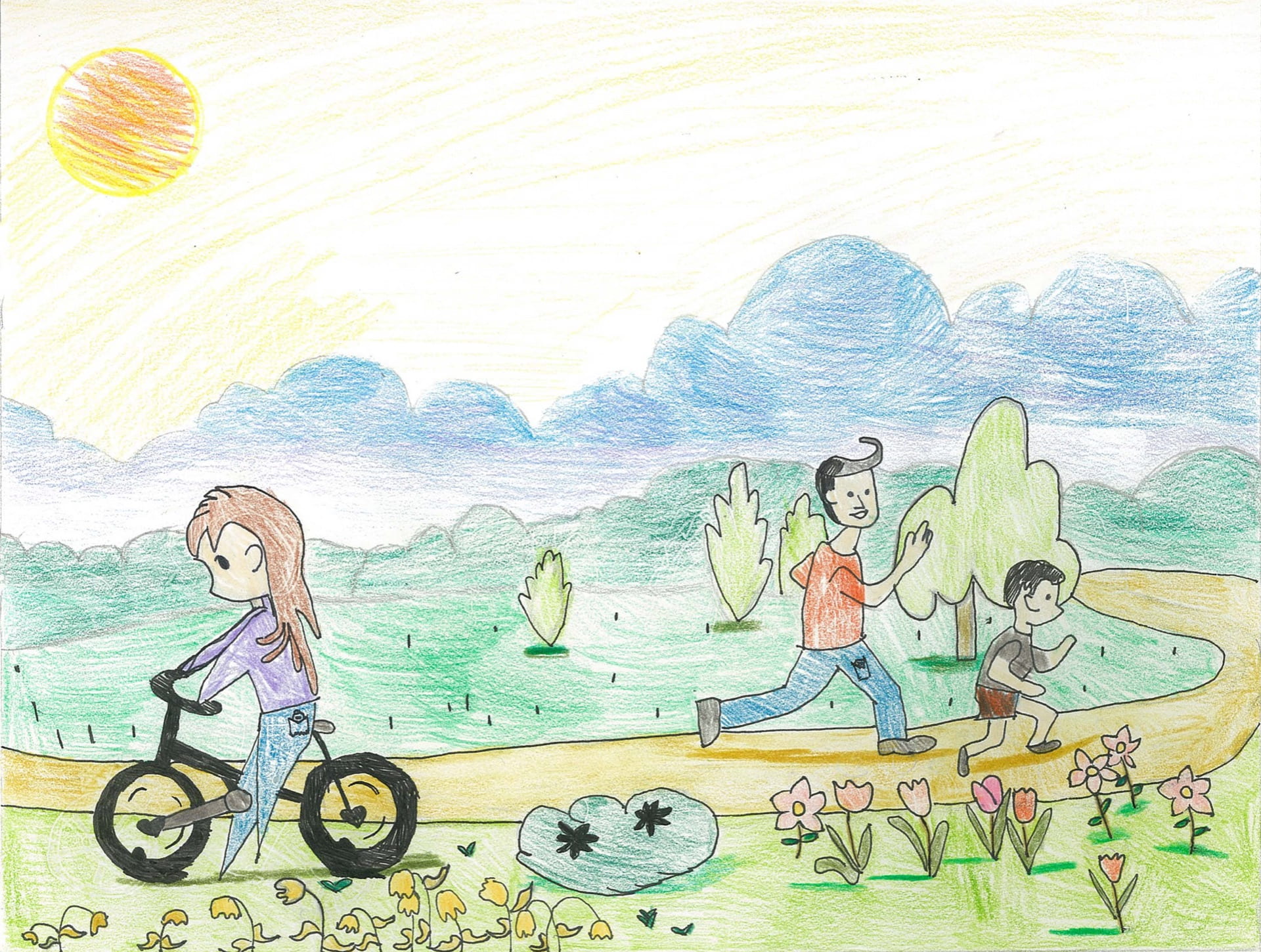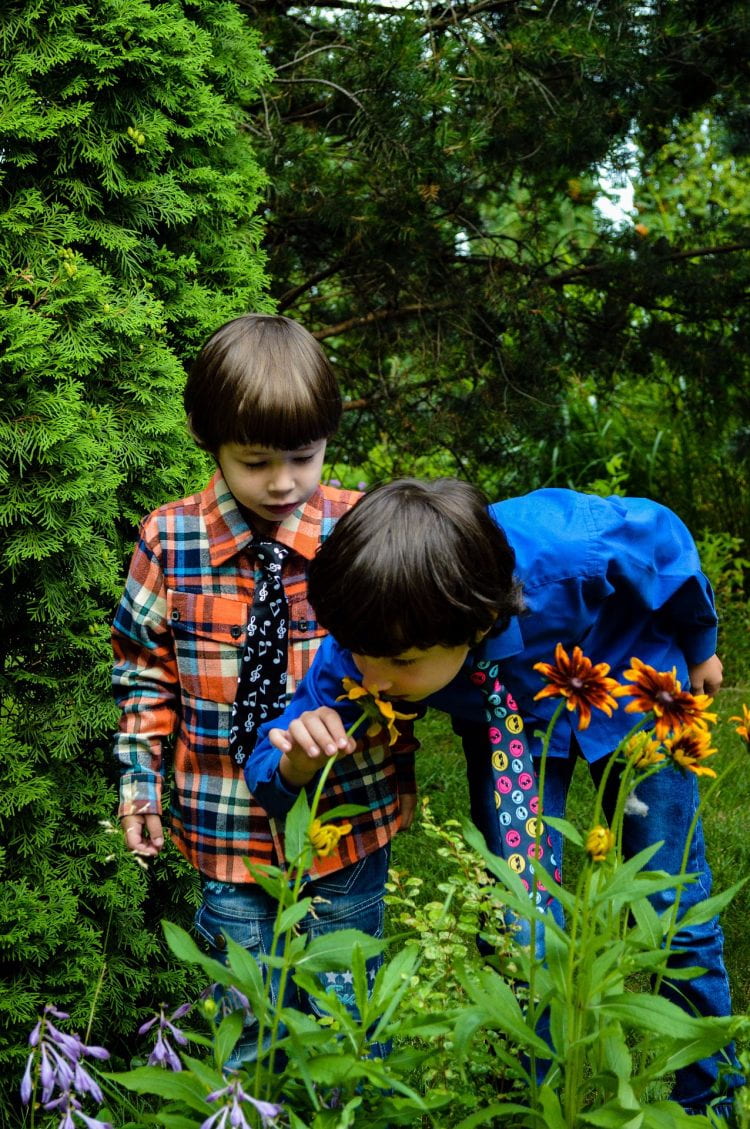Jordan Mayer is passionate about education and helping children fall in love with learning. At the moment, he is enjoying his time teaching K-2 P.E. and participating in the Imaginative Education Masters Program at Simon Fraser University. You can learn more about Jordan on his website jordanmayer.com.
Your smile makes flowers bloom. Pause for a moment to consider this statement. What kind of possibilities can your imagination create with this phrase?
A few months ago, my wife and I were out for a drive. We came to a crosswalk and waited for a family to cross the road. As the family was walking, I noticed a young child holding his mother’s hand. He seemed so content and at peace with the world. As he looked back at us, he smiled. This was no ordinary smile, however. No, his smile was so bright and beautiful that I am sure flowers began to bloom along the roadside.
That is my hope for children living in our world today. That they would walk through this life with joy and confidence knowing that they are loved and have something special to share with the world.

I recently self-published a book called “Your Smile Makes Flowers Bloom: How the Core Competencies Can Help Children Thrive in our World Today.” I had no intention of writing a book until I had a conversation with a friend.
At the time, I was trying to figure out whether I should apply for a Master’s program or not. Seeking guidance, I asked this friend to have coffee with me at a nearby Starbucks. This friend of mine is a very bright individual and committed to the field of education. As we were talking, he mentioned that it was challenging to clearly communicate a specific aspect of British Columbia’s new curriculum: The Core Competencies. He didn’t go into much detail and our conversation quickly changed to a different topic. However, his statement stuck with me and I wondered if there was something I could do.
A few days later, I decided that I was going to try and write a book about the Core Competencies. My goal was to clearly explain what the Core Competencies are and demonstrate how they come up in day to day living.
When I sat down to write the book, I tried to think how I could communicate my message in a clear and effective manner. A story that I had recently read came to mind: “Chop Wood, Carry Water: How to Fall in Love with the Process of Being Great” by Joshua Medcalf. In his book, Joshua writes a fictional story about an individual who wants to become a samurai warrior. Throughout the story, Joshua communicates his thoughts on how someone can become great at something. While reading the story, I was engaged and challenged by Joshua’s message. Upon finishing the book, I realized just how powerful “story” could be.
 As a result, I set out to write my own story in order to share on the topic of Core Competencies. My hope for the story-shaped book was to help people understand the meaning behind the Core Competencies. The story centers on a young girl named Lucy who is in Grade 2. In each chapter, I begin with a Core Competency and then share an example of how this might come up in a child’s life.
As a result, I set out to write my own story in order to share on the topic of Core Competencies. My hope for the story-shaped book was to help people understand the meaning behind the Core Competencies. The story centers on a young girl named Lucy who is in Grade 2. In each chapter, I begin with a Core Competency and then share an example of how this might come up in a child’s life.
For example, in chapter 7, I look at the following Core Competency: I can tell when someone is sad or angry and try to make them feel better (Social Awareness and Responsibility). In the story, Lucy and her friend Ava decide to go to the park during recess. However, on the way, they see a girl in Kindergarten who is sitting all alone on a buddy bench. Instead of walking by, they decide to invite the girl to play with them.
Learning the Core Competencies is not something that will happen overnight. In fact, no one will ever master them and that is not the point. I often use to hear, “Practice makes perfect” while I was playing basketball. However, I much prefer, “Practice makes progress.” Through intentional teaching and purposeful reflection, children will slowly gain important skills they will need as they journey through life.
 As educators and parents, we have a shared responsibility of helping children on this journey. As Mr. Rogers once said: “We live in a world in which we need to share responsibility. It’s easy to say, ‘It’s not my child, not my community, not my world, not my problem.’ Then there are those who see the need and respond. I consider those people my heroes.”
As educators and parents, we have a shared responsibility of helping children on this journey. As Mr. Rogers once said: “We live in a world in which we need to share responsibility. It’s easy to say, ‘It’s not my child, not my community, not my world, not my problem.’ Then there are those who see the need and respond. I consider those people my heroes.”
Reader, I consider you to be a hero. You wouldn’t be reading this post unless you were committed to your calling. Don’t be afraid to go out there and get dirty. You’ll make mistakes. You’ll stumble and fall and that is okay. Be kind to yourself and know that you are making a real difference in the world!


